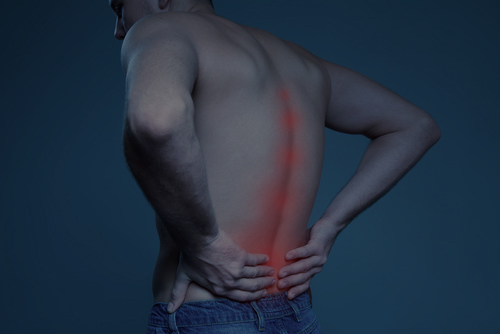LOWER BACK PAIN
In The US, Lower Back Pain Is One Of The Most Common Conditions And One Of The Leading Causes Of Physician Visits. In Fact, At Least Four Out Of Five Adults Will Experience It At Some Point In Their Lives.
The lower back is an intricate structure of interconnected and overlapping elements:
- Tendons and muscles and other soft tissues
- Highly sensitive nerves and nerve roots that travel from the lower back down into the legs and feet
- Small and complex joints
- Spinal discs with their gelatinous inner cores.
An irritation or problem with any of these structures can cause lower back pain and/or pain that radiates or is referred to other parts of the body. Pain from resultant lower back muscle spasms can be severe, and pain from a number of syndromes can become chronic.
While lower back pain is extremely common, the symptoms and severity of lower back pain vary greatly. A simple lower back muscle strain might be excruciating enough to necessitate an emergency room visit, while a degenerating disc might cause only mild, intermittent discomfort.
Identifying the symptoms, along with an accurate diagnosis of the underlying cause of the pain, is the first step in obtaining effective pain relief.
These lower back pain symptoms include any combination of the following:
- Difficulty moving that can be severe enough to prevent walking or standing
- Pain that does not radiate down the leg or pain that also moves around to the groin, buttock or upper thigh, but rarely travels below the knee;
- Pain that tends to be achy and dull
- Muscle spasms, which can be severe
- Local soreness upon touch
Most cases of low back pain do not require urgent care, but patients should seek a doctor immediately if they experience low back pain as a result of severe trauma, or if low back pain is accompanied by any of the following:
- Fever and chills
- Unexplained recent weight loss, or recent weight loss due to trauma
- Significant leg weakness
- Sudden bowel and/or bladder incontinence – either difficulty passing urine or having a bowel movement, or loss of control of urination or bowel movement
- Severe, continuous abdominal pain

LOWER BACK PAIN
While Lower Back Pain Is Extremely Common, The Symptoms And Severity Of Lower Back Pain Vary Greatly. A Simple Lower Back Muscle Strain Might Be Excruciating Enough To Necessitate An Emergency Room Visit, While A Degenerating Disc Might Cause Only Mild, Intermittent Discomfort.
